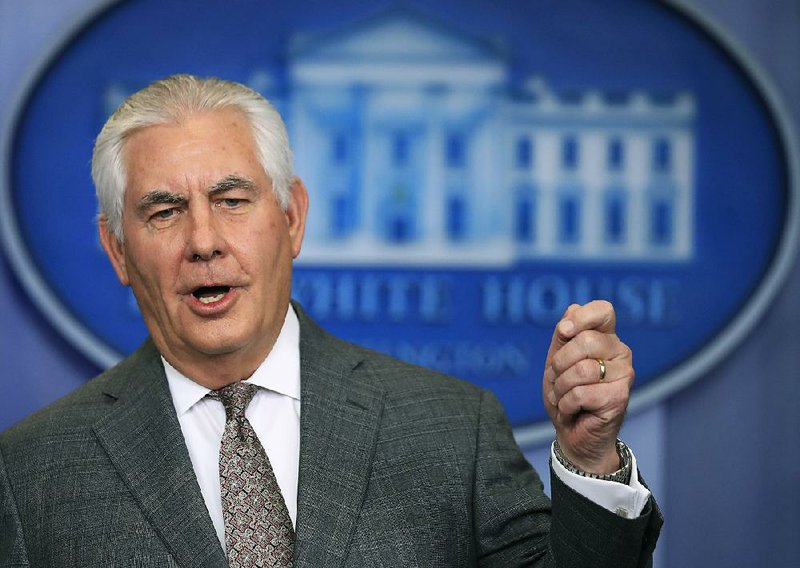WASHINGTON -- The United States on Wednesday declared the ongoing violence against Rohingya Muslims in Burma to be "ethnic cleansing," threatening penalties for military officials engaged in a brutal crackdown that has sent more than 600,000 refugees flooding over the border to Bangladesh.
Secretary of State Rex Tillerson blamed Burma's security forces and "local vigilantes" for what he called "intolerable suffering" by the Rohingya. Although the military has accused Rohingya insurgents of triggering the crisis, Tillerson said that "no provocation can justify the horrendous atrocities that have ensued."
"After a careful and thorough analysis of available facts, it is clear that the situation in northern Rakhine state constitutes ethnic cleansing against the Rohingya," Tillerson said in a statement.
Although the designation carries no legal obligations for the United States to act, Tillerson said those who perpetrated the atrocities "must be held accountable." He added that the United States wanted a full investigation and was considering "targeted sanctions" against those responsible -- but not broader sanctions against the nation.
Rohingya from Burma's Rakhine state have been fleeing to neighboring Bangladesh, seeking refuge from what Burma's military has called "clearance operations." The crisis started in August, when Rohingya insurgents attacked Burmese security forces, leading to a brutal crackdown in which soldiers and Buddhist mobs have killed men, raped woman and burned houses and property to force the Rohingya to leave.
The declaration followed a lengthy review process by President Donald Trump's administration to determine whether the violence met the threshold to be considered ethnic cleansing. The United Nations came to that conclusion in September, but the United States had held off, with Tillerson saying he needed more information even as he expressed deep concern about the crisis.
Last week, Tillerson traveled to Burma in the highest level visit by a U.S. official since Trump took office. U.S. officials dangled the possibility of an "ethnic cleansing" designation ahead of Tillerson's trip, potentially giving him more leverage as he met with officials in Burma.
In the capital of Naypitaw, Tillerson met with the country's civilian leader, Aung San Suu Kyi, as well as the nation's powerful military chief, Min Aung Hlaing, who is in charge of operations in Rakhine state, home to Burma's Rohingya population.
Senior State Department officials said the determination was intended to increase pressure on the military and others in Burma to resolve the conflict and repatriate refugees who have fled to Bangladesh.
Information for this article was contributed by Matthew Pennington of The Associated Press.
A Section on 11/23/2017
